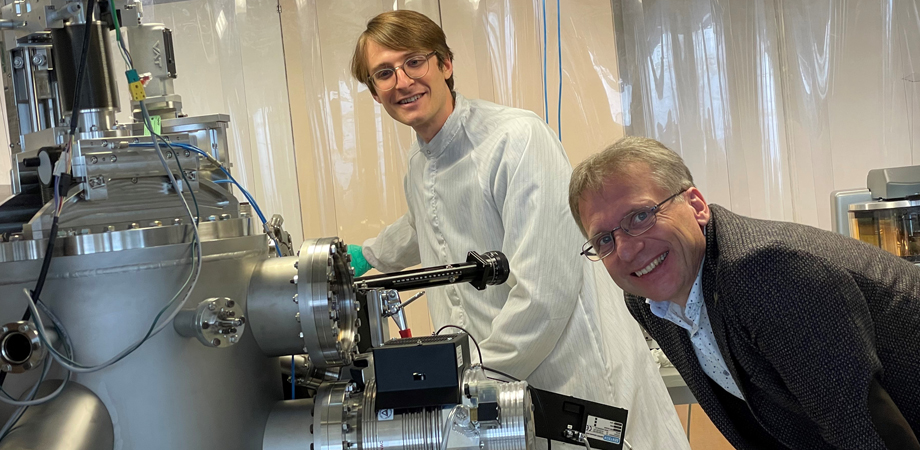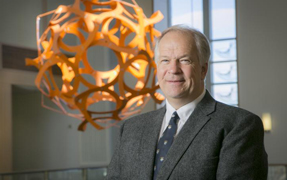Bert Müller: The 2022 SPIE Biophotonics Technology Innovator Award

Bert Müller, the Thomas Straumann Professor for Materials Science in Medicine at the University of Basel and director of the university's Biomaterials Science Center, has contributed indelibly to biomedical imaging, focusing on nanomedicine and nanodentistry with critical clinical impacts. His research team has employed several optical techniques, including spectral ellipsometry, to realize dielectric elastomer transducers for pressure sensors in the oral cavity and in artificial muscles for treating severe urinary and fecal incontinence. This progress also led to ultra-soft electrodes for a computer-brain interface, replacing microelectronics-based electrodes for deep brain stimulation.
His breakthrough work with his team generated a deep-tech spin-off company, Bottmedical AG, in 2019: as its cofounder and advisor, Müller has actively supported the development and patenting of transparent cellulose aligners for orthodontic treatments and tongue-machine interfaces for gamified myofunctional training to treat snoring and sleep apnea. He is also the cofounder and advisor of biotech company Acthera Therapeutics, and, earlier this year, he founded Bottneuro AG, a company focusing on personalized therapies for Alzheimer's which was showcased as a Forbes magazine "Spin-offs to Watch 2021." Müller, an SPIE Fellow, has been a member of the SPIE Fellows Committee, has served as an SPIE conference chair, and is currently an associate editor for SPIE's Journal of Nanophotonics. He has also served as an SPIE Student luncheon participant, supporting young researchers.
"Bert's research is truly interdisciplinary, bringing physics to biology in a thoughtful and creative manner," notes UCLA School of Dentistry Professor Shane N. White. "He has also been extremely productive, publishing over 350 papers and mentoring many doctoral students, but these elements are overshadowed by the original, unique, and profound insights provided by his work. Being a dentist who studies genetic-structural relationships in tooth enamel, I found that Bert's contributions to the understanding of enamel nanostructure provided breathtaking insights to a notoriously complex and difficult material. He's provided similar insights into tooth dentin, and his work on dental decay is groundbreaking, showing that even in a lesion that crosses enamel and extents into dentin, the normal anisotropic scaffold is still present. This finding suggests the extremely exciting potential to recreate the original nanostructure: In theory, small and moderate lesions could be made as good as new, an idea that used to be unimaginable. I'm grateful that Bert has applied his nanomaterials characterization skills to a wide range of biological tissues, addressing a variety of very difficult clinical problems. His interdisciplinary approach to medical challenges with a focus on materials and physics is transformative."
Meet the other 2022 SPIE Society Award winners.
Read more about Bert Müller and the SPIE Biophotonics Technology Innovator Award.



